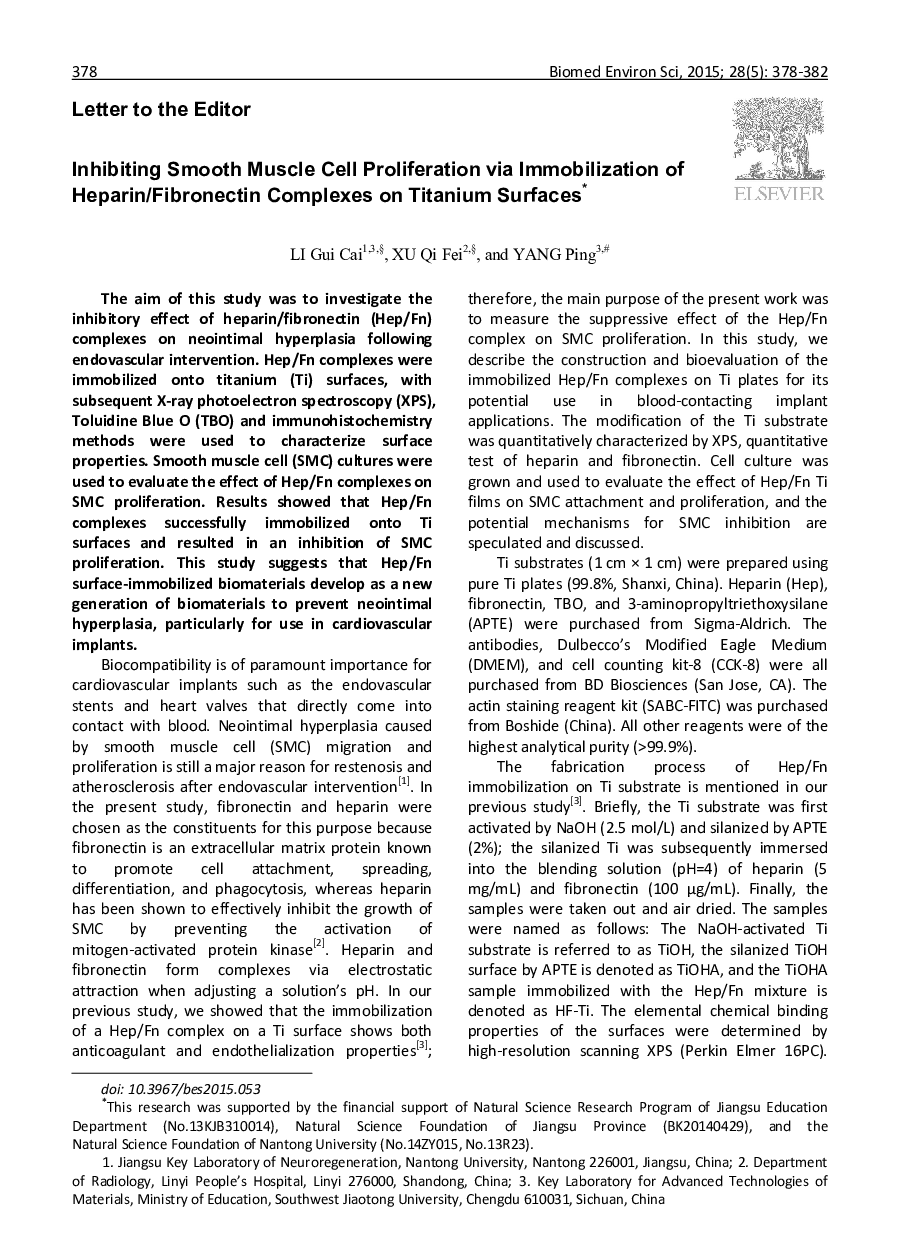| Article ID | Journal | Published Year | Pages | File Type |
|---|---|---|---|---|
| 4195744 | Biomedical and Environmental Sciences | 2015 | 5 Pages |
The aim of this study was to investigate the inhibitory effect of heparin/fibronectin (Hep/Fn) complexes on neointimal hyperplasia following endovascular intervention. Hep/Fn complexes were immobilized onto titanium (Ti) surfaces, with subsequent X-ray photoelectron spectroscopy (XPS), Toluidine Blue O (TBO) and immunohistochemistry methods were used to characterize surface properties. Smooth muscle cell (SMC) cultures were used to evaluate the effect of Hep/Fn complexes on SMC proliferation. Results showed that Hep/Fn complexes successfully immobilized onto Ti surfaces and resulted in an inhibition of SMC proliferation. This study suggests that Hep/Fn surface-immobilized biomaterials develop as a new generation of biomaterials to prevent neointimal hyperplasia, particularly for use in cardiovascular implants.
